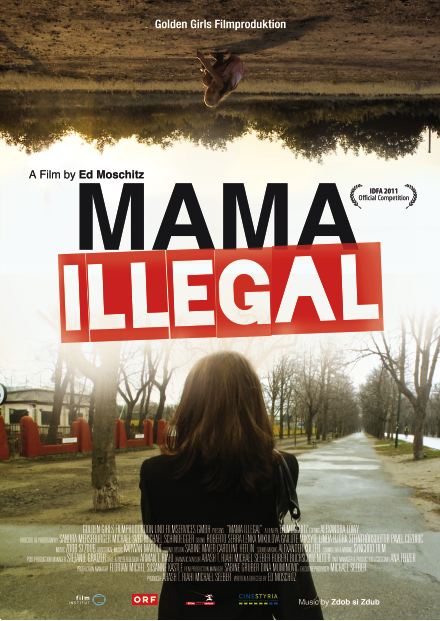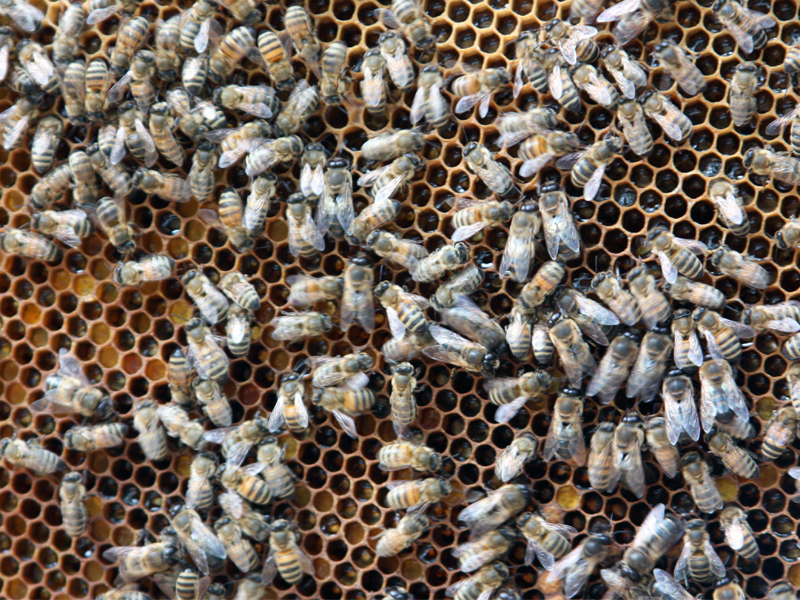Going to the One World in Brussels Film Festival is not just about seeing movies! One World in Brussels hosts a variety of Panel Discussions that are lively and interesting. The International Human Rights Film Festival provides an important opportunity for documentary films to be seen by a number of policy makers and power brokers that are in a position to help bring about change. It is also a chance for film lovers, students and engaged citizens to be inspired by the powerful stories of individuals and societies fighting for a more just world. One of the movies presented at the Film Festival was “Mama Illegal”, a documentary about three Moldovan Women who seek work and happiness in Italy and Austria. More than 250 people found their way to the Goethe Institute in Brussels. The screening of the breathtaking documentary was followed by a lively discussion with the director of the movie Ed Moschitz, Victoria Pirker from Human Rights Without Frontiers and Patrick Griesser, editor of Moldovarious.
Fly, Sweet Honeybee, Fly!
Istanbul and a Little Bit of Love
 The best and most memorable events in my life have a weird habit – they tend to happen by chance. By pure chance I once had a free weekend, it was a totally random decision to spend it at my parents’, the only place where I watch television, and of course no one could foresee that I would watch news and see a report about Princess Elena, a cruise ship that takes idle vacationers from Giurgiuleşti, a brand-new international sea port, to Istanbul and back. Continue reading “Istanbul and a Little Bit of Love”
The best and most memorable events in my life have a weird habit – they tend to happen by chance. By pure chance I once had a free weekend, it was a totally random decision to spend it at my parents’, the only place where I watch television, and of course no one could foresee that I would watch news and see a report about Princess Elena, a cruise ship that takes idle vacationers from Giurgiuleşti, a brand-new international sea port, to Istanbul and back. Continue reading “Istanbul and a Little Bit of Love”
Butterflies Don’t Lie – Downloads Online
Guest Editors
Diana Lefter
Diana Lefter, BA in Economics & Marketing, had been living & working for several years in Portugal, Great Britain and Germany. The native Moldovan currently lives in Vienna, Austria. Diana Lefter is fond of languages and fluently speaks Romanian, Russian, Ukrainian, German, English, Portuguese and French. Due to her open mind and her cosmopolitan mindset, she puts her country Moldova in a very sophisticated light.
Research interests: economics, marketing, international cooperation, philosophy, literature & arts
Anastasia Stratu
Anastasia Stratu is a professional translator and interpreter. She studied international economic relations at the International Economic Relations Department of the Moldovan Academy of Economic Studies. Ms. Stratu is fluent in five languages and on the way to learn two more. She is also a writer, but not a professional one, with a rather wide circle of interests in this area – from poetry to essays to plays and novels.
Research interests: linguistics, translation theory, folklore, history of arts, communication in cyberspace
Michael Bobick
Michael Bobick, Ph.D. Candidate in Cultural Anthropology, is currently a
Fulbright Scholar in Moldova. When not tramping around Moldova, he can be
found in Ithaca, New York where he teaches freshman how to write essays and
tries to make the post-Soviet region interesting to non-specialists.
Research Interests: ideology, psychoanalysis, nationalism, frozen
conflicts, ex-USSR, religion, sovereignty, civil society, visual studies
Interactive
Join us and be active part of Moldovarious.com. By subscribing the News Mailer, you will be informed via e-mail about the latest Moldovarious news. In the Downloads section you can choose your favourite Moldovarious.com design.
Gagauzia
The Autonomous Territorial Unit Gagauzia, a region consisting of 4 non constigous parts, is situated in the south of Moldova. The terminus “Gagauz” etymologically derives from Gok-oguz, meaning “heaven of the Oghuz Turks”. According to the National Gagauzian Museum of History and Ethnography in Beşalma, there are 23 different theories about the Gagauz origins. One of the theories say, that the Gagaguz descend from the two early nomadic tribes Guzi and Uzi which are branches of the Oghuz Turks. They settled in the Dobrudja region (today Bulgaria) alongside the Polovtsi and Kumani people in the 13th century. There the Guzi shifted to a sedentary lifestyle and adopted Orthodox Christianity. The ethnic mixture of the Guzi with the other Turkic tribes can be seen as direct ancestors of modern day Gagauzians.
In the late 18th and early 19th century the Tsarist government of the Russian empire allocated them land and gave them financial incentives to settle in Bessarabia, mainly in Comrat, Avdarma, Congaz, Tomai and Cismichioi. In 1988, activists from the local intelligentsia aligned with other ethnic minorities to create the movement known as the “Gagauz People”. Gagauzia declared itself independent on August 19, 1991. In February 1994 President Snegur promised a Gagauz autonomous region. On December 23, 1994, the Moldovan parliament produced a peaceful resolution to the dispute by passing the “Law on the Special Legal Status of Gagauz Yeri”. Gagauzia became a “national-territorial autonomous unit” with three official languages: Gagauz, Russian and Moldovan.
Today in the Autonomous Territorial Unit Gagauzia 150,000 inhabitants live in 26 communes, including the capital city Comrat and the towns Ceadîr-Lunga and Vulcăneşti. Dr. Mihail Formuzal, from the “United Gagauzia Movement”, has been Bashkan (governor) of Gagauzia since the last election in December 2006.
Transnistria
Transnistria, also known as Transdniestria, Transdnestr, Pridnestrovje, Pridnestrovian Moldavian Republic – PMR, is a secessionist entity within the internationally recognised borders of Moldova, with the official status of an autonomous territory. Transnistria emerged after the break-up from the Soviet Union and is internationally unrecognized and isolated from international developments.
Starting from March 2, 1992, there was concerted military action between Moldova and Transnistria. A ceasefire agreement was signed on July 21, 1992 and has held to the present day, but the territory’s political status remains still unresolved. As part of that agreement, a three-party Joint Control Commission between PMR, Moldova and Russia, supervises the security arrangements in the demilitarized zone. The OSCE is trying to facilitate a negotiated settlement.
The region is organised as a presidential republic, with its own government, parliament, military, police and postal system. The authorities have adopted a constitution, a flag, a national anthem and a coat of arms. Transnistria has its own currency, the Transnistrian Ruble.
Transnistria is located mostly in a strip between the Dniester River, which forms a natural border with Moldova and the Ukraine. In this small valley with an area of 4.163 square km there live about 550.000 people. The population is predominantly Moldovian, Russian and Ukrainian, the language spoken on the streets is Russian. Tiraspol, the capital and largest city of Transnistria, has about 130.000 inhabitants.
Igor Smirnov has been the President of Transnistria since the declaration of independence in 1990 and he is currently serving his fourth mandate after being reelected in December 2006.
Transnistria’s economy is based on a mix of heavy industry (steel production), production of electricity and manufacturing (textile production), which together accounts about 80% of the total industrial output.
Demographics
Due to a chequered history, today Moldova’s society is a colorful mixture of diverse ethnic groups. This cultural variety finds its expression in day-to-day life. A range of different backgrounds, languages and costumes make life in the Republic of Moldova fascinating and complex at the same time. According to the Moldovan census of 2004 the ethnic composition of Moldova – including Transnistria – is the following:
Ethnic composition
|
|
Ethnicity |
Mold. census |
% Mold. |
Trans. census |
% Trans. |
Total |
% |
|
1. |
Moldovans |
2,564,849 |
75.8% |
177,156 |
31.9% |
2,742,005 |
69.6% |
|
2. |
Ukrainians |
282,406 |
8.3% |
159,940 |
28.8% |
442,346 |
11.2% |
|
3. |
Russians |
201,218 |
5.9% |
168,270 |
30.3% |
369,488 |
9.4% |
|
4. |
Gagauzians |
147,500 |
4.4% |
11,107 |
2.0% |
158,607 |
4.0% |
|
5. |
Romanians |
73,276 |
2.2% |
NA |
NA |
73,276 |
1.9% |
|
6. |
Bulgarians |
65,662 |
1.9% |
11,107 |
2.0% |
76,769 |
1.9% |
|
7. |
Others (Jews, Belarusians, Poles, Roma…) |
48,421 |
1.4% |
27,767 |
5.0% |
76,188 |
1.9% |
|
8. |
TOTAL |
3,383,332 |
100% |
555,347 |
100% |
3,938,679 |
100% |
Audio
Two Girls Rock the City
Moldova’s Hard Rock and Heavy Metal scene was at its peak in the 90s. Today, a lot of newcomer bands scream and shout for a rock revival. The two lead singers Lena Cataraga and Olga Buionovskaia are amongst the new courageous and motivated generation of Chisinau’s rockers.
Lena Cataraga, “The Songs come from my heart”
Lena is the voice and composer of “Infected Rain”, a hard rock band that describes itself as a combination of female scream, hard riffs and individual style. She spent the early days of her life in Armenia, her father’s place, Chisinau and Rome. At latter she studied English and Spanish at Sapienza University. In 2008 the 22-year-old hairdresser founded Infected Rain together with her boy friend and four more band members.
I loved Nirvana
{mp3}rock_olga/nirvana{/mp3}
Winner at Nasha Radio
{mp3}rock_olga/nasha radio{/mp3}
Open Air concerts
{mp3}rock_olga/stary melnik{/mp3}
My first vocal lessions
{mp3}rock_olga/vocal lessions{/mp3}
Infected rain history
{mp3}rock_olga/band history{/mp3}
I am out of the norm
{mp3}rock_olga/out of norm{/mp3}
Songs come from heart
{mp3}rock_olga/songs from heart{/mp3}
My childhood influences lyrics
{mp3}rock_olga/childhood lyrics{/mp3}
Live on stage in Romania
{mp3}rock_olga/future{/mp3}
Olga Buionovskaia, “We want our Black Elephant back!”
Olga Buionovskaia loves rock music and is a passionate singer. Thus, she is part of three bands: the lead singer in “Bionic Art” and a back vocalist in “Uje Utro” and “Mate”. The language teacher talked with Moldovarious.com about the best days and the status quo of Moldova’s rock scene.
How Chisinau rocked ten years ago
{mp3}rock_olga/how chisinaus youth rocked 10 years ago{/mp3}
Black Elephant & Yellow Submarine
{mp3}rock_olga/black elephant yellow submarine{/mp3}
You can’t make a living
{mp3}rock_olga/as a moldovan rocker you cant make a living{/mp3}
Uje Utro has a sponsor
{mp3}rock_olga/uje utro and its sponsor{/mp3}
No more place to rock today
{mp3}rock_olga/no more place to rock today{/mp3}
—————————————————————————————————————–
Susanna Balian, “We want to highlight the diversity of Moldovan art”
Susanna Balian joined the IWCM – International Women’s Club of Moldova three and a half years ago. IWCM provides a variety of weekly and monthly activities to share experience, socialise and raise money for charity. The club members have their orgins from more than 35 nationalities and try to learn about Moldova and its rich culture. Susanna Balian worked among others as the club’s webmaster and is now in charge of IWCM events.
IWCM’s fundraising events
{mp3}womensclub/womensclub1{/mp3}
Aim of Night of Art
{mp3}womensclub/aimofevent{/mp3}
88 diverse Moldovan artists
{mp3}womensclub/aufzhlungaustellung{/mp3}
1st glossy catalogue
{mp3}womensclub/catalogue{/mp3}
…and the donation goes to…
{mp3}womensclub/spenden{/mp3}
—————————————————————————————————————————————-
Anastasia Stratu, “Our civilisation is under construction!”
Anastasia Stratu is a young Moldovan intellectual. After her studies of management of international economic relations and translations in Chisinau, she lived and worked in Moscow for three years. 28-year-old Stratu, who is fluent in five languages, is an expert in Moldovan history, specialising in local myths and legends. Currently she is writing her first novel. Moldovarious.com meets Mrs. Stratu:
Dynamic Chisinau
{mp3}ana_funky/dynamic chisinau1{/mp3}
Fairy tales, dances and songs
{mp3}ana_funky/fairy tales and songs2{/mp3}
This is heaven
{mp3}ana_funky/this is heaven3{/mp3}
We are ambitious
{mp3}ana_funky/we are ambitious4{/mp3}
I am a patriot
{mp3}ana_funky/patriot5{/mp3}
Civilisation under construction
{mp3}ana_funky/civilisation under construction{/mp3}
Mimicry
{mp3}ana_funky/mimicry{/mp3}
Low civil culture
{mp3}ana_funky/culture civil{/mp3}
Nepotism and corruption
{mp3}ana_funky/corruption nepotism{/mp3}
Positive trend
{mp3}ana_funky/positive trend{/mp3}





